Knowing What's Ahead in Your SCAC Journey
Each patient's SCAC journey is unique. Ask your doctor about available treatments for SCAC.
Your doctor will work with you to decide the best approach for therapy.
An initial diagnosis of SCAC can occur either at an early stage, when the cancer is still localized, or at a later stage, when it has spread to other areas. Here’s what you can expect with each diagnosis.
Localized/Locally Advanced SCAC
- Localized: This means the cancer was found very early and hasn't yet spread. Also known as early-stage SCAC
- Locally advanced: This means the cancer may be in nearby lymph nodes or has invaded nearby organs
What to expect:
At this stage, there are two main treatment options: surgery and chemoradiation therapy (CRT, for short). CRT uses both chemotherapy and radiation at the same time to shrink tumors and prevent the cancer from spreading.
What you might experience*:
CRT therapy takes 5 to 6 weeks to complete. CRT can take a toll on your body, with common side effects including skin irritation and tenderness at the radiation treatment site, nausea, vomiting, and sores in the mouth and lining of the anus. Talk to your doctor about ways to prevent or reduce side effects.
Your doctor will schedule a follow-up physical exam, including a digital rectal examination, about 8 to 12 weeks after you finish CRT to check how well the treatment worked. Your doctor may also recommend imaging tests.
Metastatic SCAC
This means the cancer has spread to distant parts of the body, such as the liver or lungs. Also known as late-stage or stage IV SCAC.
How this is managed*:
Historically, the initial treatment for patients with metastatic SCAC has been chemotherapy, but an FDA-approved treatment for metastatic SCAC is now available.
SCAC that’s in remission:
Now that you've completed treatment and there are no signs of cancer, your doctor will continue to monitor your health with regular follow-up appointments. They’ll explain what tests may be needed as part of your ongoing care.
What you can do now:
Stay on top of your health by keeping up with follow-up visits and any tests your doctor recommends. Watch for any new or worsening symptoms, and don’t wait to speak up if you notice changes. Remember, self-care is a big part of staying healthy while in remission.
SCAC that has come back:
When cancer returns after being in remission, it's called a recurrence, meaning some cancer cells have grown back. Your recurrent cancer may be in the same location as the original cancer or in soft tissue or lymph nodes near the original cancer. It also may have spread to more distant parts of the body.
SCAC that didn't respond to treatment:
When cancer does not respond to treatment, it's called progressive disease. Your progressive disease may be limited to the anal area or it may have spread to distant parts of the body.
How this is managed*:
Together with your doctor, you’ll decide what the best treatment is for you. Ask about any new treatment options that might be available.
Explore the National Comprehensive Cancer Network® (NCCN®) Patient Guidelines along with these resources to help navigate your SCAC journey
*
Referenced with permission from the NCCN Guidelines for Patients® for Anal Cancer, 2022. © 2024 National Comprehensive Cancer Network, All Rights Reserved. Accessed December 1, 2024. To view the most recent and complete version of the NCCN Guidelines for Patients, visit nccn.org/patientguidelines.
NCCN makes no warranties of any kind whatsoever regarding their content, use or application and disclaims any responsibility for their application or use in any way.
Knowing What's Ahead in Your SCAC Journey
Each patient's SCAC journey is unique. Ask your doctor about available treatments for SCAC. Your doctor will work with you to decide the best approach for therapy.
An initial diagnosis of SCAC can occur either at an early stage, when the cancer is still localized, or at a later stage, when it has spread to other areas. Here’s what you can expect with each diagnosis.
Localized/Locally Advanced SCAC
- Localized: This means the cancer was found very early and hasn't yet spread. Also known as early-stage SCAC
- Locally advanced: This means the cancer may be in nearby lymph nodes or has invaded nearby organs
What to expect:
At this stage, there are two main treatment options: surgery and chemoradiation therapy (CRT, for short). CRT uses both chemotherapy and radiation at the same time to shrink tumors and prevent the cancer from spreading.
What you might experience*:
CRT therapy takes 5 to 6 weeks to complete. CRT can take a toll on your body, with common side effects including skin irritation and tenderness at the radiation treatment site, nausea, vomiting, and sores in the mouth and lining of the anus. Talk to your doctor about ways to prevent or reduce side effects.
Your doctor will schedule a follow-up physical exam, including a digital rectal examination, about 8 to 12 weeks after you finish CRT to check how well the treatment worked. Your doctor may also recommend imaging tests.
Metastatic SCAC
This means the cancer has spread to distant parts of the body, such as the liver or lungs. Also known as late-stage or stage IV SCAC.
How this is managed*:
Historically, the initial treatment for patients with metastatic SCAC has been chemotherapy, but an FDA-approved treatment for metastatic SCAC is now available.
SCAC that’s in remission:
Now that you've completed treatment and there are no signs of cancer, your doctor will continue to monitor your health with regular follow-up appointments. They’ll explain what tests may be needed as part of your ongoing care.
What you can do now:
Stay on top of your health by keeping up with follow-up visits and any tests your doctor recommends. Watch for any new or worsening symptoms, and don’t wait to speak up if you notice changes. Remember, self-care is a big part of staying healthy while in remission.
SCAC that has come back:
When cancer returns after being in remission, it's called a recurrence, meaning some cancer cells have grown back. Your recurrent cancer may be in the same location as the original cancer or in soft tissue or lymph nodes near the original cancer. It also may have spread to more distant parts of the body.
SCAC that didn't respond to treatment:
When cancer does not respond to treatment, it's called progressive disease. Your progressive disease may be limited to the anal area or it may have spread to distant parts of the body.
How this is managed*:
Together with your doctor, you’ll decide what the best treatment is for you. Ask about any new treatment options that might be available.
Explore the National Comprehensive Cancer Network® (NCCN®) Patient Guidelines along with these resources to help navigate your SCAC journey
*
Referenced with permission from the NCCN Guidelines for Patients® for Anal Cancer, 2022. © 2024 National Comprehensive Cancer Network, All Rights Reserved. Accessed December 1, 2024. To view the most recent and complete version of the NCCN Guidelines for Patients, visit nccn.org/patientguidelines.
NCCN makes no warranties of any kind whatsoever regarding their content, use or application and disclaims any responsibility for their application or use in any way.
Learn about an available treatment option for certain people with SCAC
Real Stories about Anal Cancer
Navigating Ongoing Care
Mary shares her journey of being diagnosed with anal cancer, highlighting her symptoms, delayed diagnosis, and treatment experience, as well as the importance of self-advocacy, seeking support, and educating others.
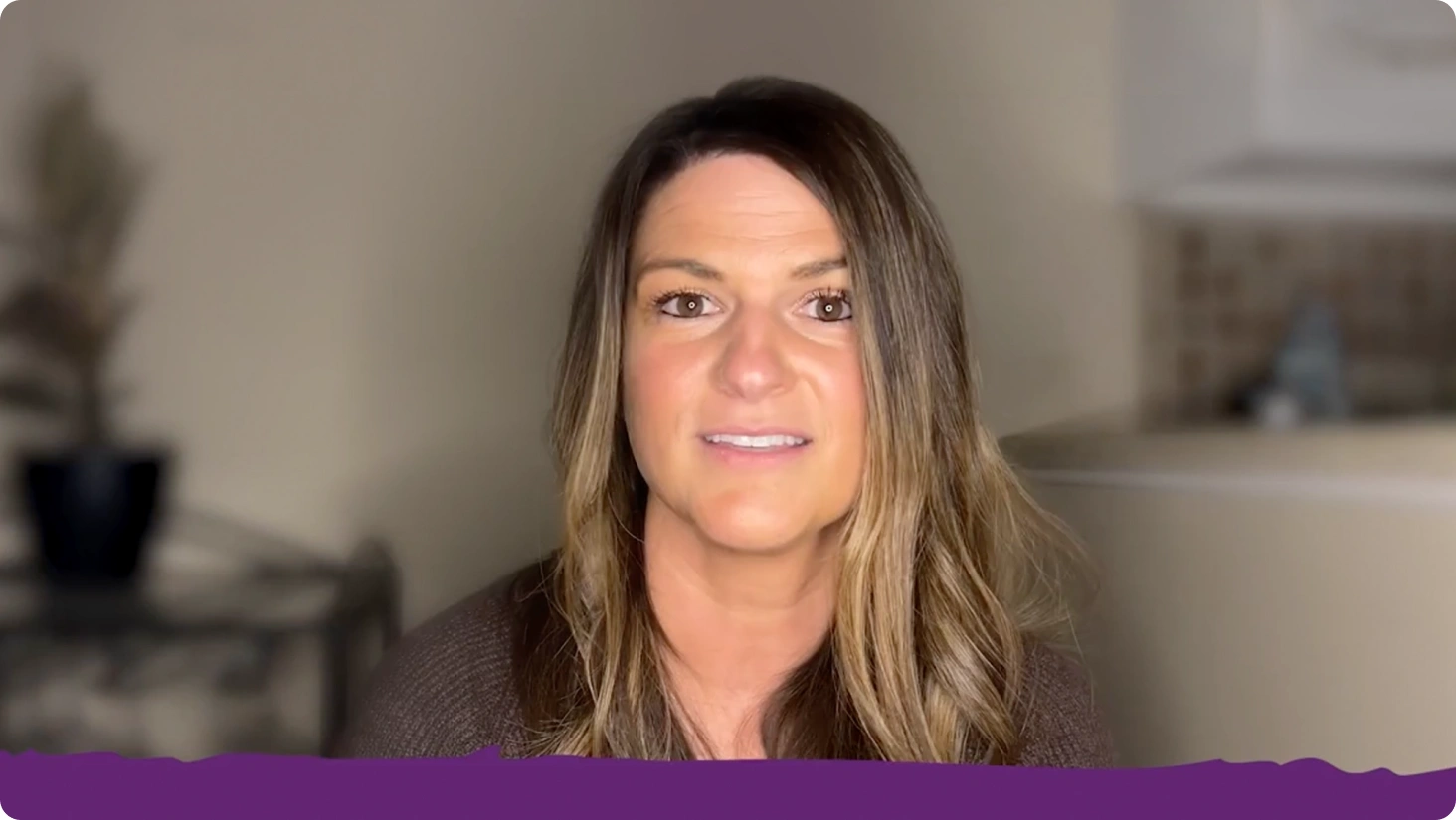
So my name is Mary Guevara. I am 39 years old. I live in Buffalo, New York, with my husband and my two daughters. My girls are 13 and 12. I am an elementary school teacher, so that consumes most of my week. And being a mom does too. My girls are athletes, three-sport athletes actually. And I love to read and just spend time at home.
I was first diagnosed at 35, which was back in 2020 when the world had shut down for COVID, and it added a whole different level of challenge on to a cancer diagnosis. I was diagnosed with stage three anal cancer. The symptoms that I was experiencing included bleeding while using the bathroom. I had severe itching and just some pain while having a bowel movement. And I had brought all of those symptoms to the attention of my primary and my Ob Gyn. And I was young. So at 35, they kept just telling me that I had had two kids, I had my daughters 16 months apart, and it was hemorrhoids. But I called my primary again to say that something was really wrong. He then directed me to a colorectal surgeon in the area who brought me in right away.
Many doctor's offices at the time were denying patients and saying they were only taking emergencies, but I—this qualified as an emergency. So he brought me in and took a look and immediately told me I needed a colonoscopy, which I had, I think it was only like three days later. And he went in and he told my husband when I had come out of my colonoscopy that I did have a polyp. That's what he called it, even though it was three centimeters. He removed it, and told him he did not feel it was cancer. Cancer usually presents as hard, and this was more of like a fatty tissue when he removed it. And he said he didn't think anything of it, but was sending it to pathology.
And then I went the weekend, and Monday I was at work in my classroom. My Apple Watch indicated that I had a notification in my patient portal where it had told me that it was in fact squamous cell carcinoma. I opted for oral chemo, so I was taking six chemo pills a day. Three in the morning, then I would go to radiation, then I would take three at night. Then, because my anal cancer was so advanced, there was at the time a clinical trial going on that my hospital recommended I try to get accepted for. So I volunteered and I signed the paperwork, and I was picked for a clinical trial as well. So after my treatment—six weeks of chemoradiation—I then did six months of immunotherapy.
I feel like there was a little bit of trauma that came along with my cancer diagnosis in the fact that I had expressed my concerns to my doctors for many years, and, you know, nobody caught this. I have learned a huge lesson from it in that I don't ever let anyone just tell me what they think is wrong with me, I make them confirm what's wrong with me. So, whether it be asking for testing or asking for an exam, I've learned at my appointments that I push for that a lot more now because I kind of rolled my dice initially with letting them just tell me it was hemorrhoids, when in fact it was not. And my body was brewing cancer. And by the time it was caught, I mean, I was lucky it was caught when it was.
So the advice I would give to others about speaking up about their symptoms is that…you never want to be too late. I did speak up about my symptoms, I mean, to my family, and then to my doctors. My sister said, no, you need to tell your doctor about that symptom, and those are big symptoms. And I did. But again, nobody ever confirmed what they thought. So my advice would be: have the conversations, demand the testing, demand an exam. No one should be embarrassed to tell their doctors what they're feeling. Doctors do this day in and day out. That's what they went to school for. That's their passion. That's why they come to work every day. And I know for anal cancer specifically it's sometimes hard to have those conversations because, you know, you're talking about parts of your body that you don't really want to talk about, and you're using words that just feel uncomfortable to say. But talking about your symptoms could essentially save your life.
The biggest thing I found that helped me was to take someone with me to all of my appointments, not only for an extra set of ears, but for… I always joke that they had a scribe for me and write things down, because there's so much information coming at you, you know, at once. And I think my advice to that is also maybe to make that person consistent. I always took the same person with me, which helped because that person then knew everything they needed to know. And it was crucial to just helping me when making decisions or to try, you know, to figure out where I was going next and what I was doing. Like I said, they would write for me, which was huge because I would come home and sometimes I would just be so caught up with the fear and the worry that I forgot, you know, what did he tell me to take or what did they tell me to do? Or, you know, what was their recommendation for this pain or this symptom or issue that I'm having. So having that person with you to kind of help you through that is huge because there's, it's—a lot happens very quickly when you're going through treatment. Well, diagnosis, treatment, and then even life after cancer. It's, it's just very different. And it's hard to understand unless you've actually like walked those shoes.
My advice for anyone fighting anal cancer or just diagnosed with anal cancer is to find that support group. Find the support that works for you, whether it be someone you know in your family or your friend group who's right here physically that can help you through, or like I said, joining some kind of support group that is out there. And it's just so nice to talk to other men and women who have been through this and who can kind of, you know, share their story too, and to know you're not the only one.
So, telling my friends and family about my diagnosis. I didn't hide it. My biggest fear initially was telling my daughters, at the time they were only eight and 10. And I remember asking my husband, do we use the word cancer? But how do you not? I didn't want to shield them from that ugly word because it was our reality at the time, and I needed to be very blunt with them. I find it difficult sometimes to tell people it's anal cancer. They kind of cringe at the word, very cliché. They kind of, you know, seem a little shocked by it. And then when I tell them it's an HPV-related cancer, it usually sparks [actual] questions, because I know so many people are touched by the HPV virus. So I think it, they're kind of like, oh, we hear the stories that HPV can cause cancer, but I don't know anyone that has. So when they hear it, I think it brings that more— it makes it more real. But telling people I had anal cancer is tough.
I look at it this way. I didn't choose where my tumor grew. It did, the tumor chose where it grew, and it chose, you know, the two inches of the anal canal in my body. That's where it, where it grew. And I just have to accept that. And the teacher in me loves to educate, whether it be in my classroom or with this. So I quickly just had to find the comfort with sharing what I had, and what that looked like. And I was pretty open with my journey and with my diagnosis. And I—I tell everybody I'm an open book, if you have questions I am happy, happy to answer them. There's really no question anyone has asked me that I have not been willing to answer. Because there's a lot of people out there that are fighting the fight I fought. And knowledge is power.
Speaking Up About Symptoms of Anal Cancer
Claudia engages in a candid conversation about recognizing symptoms and when to see a doctor.
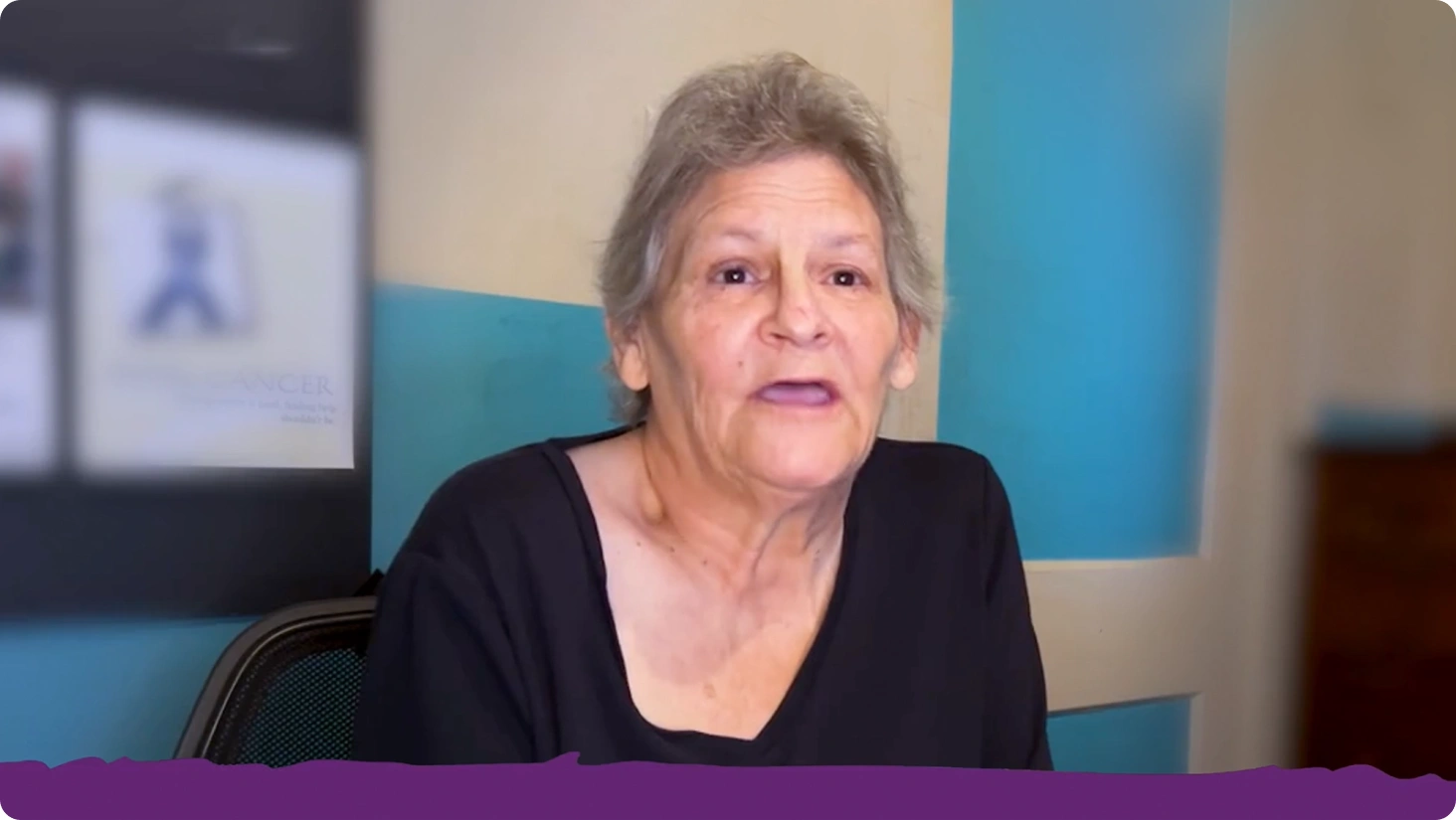
I'm Claudia Makowski from Mount Clemens, Michigan, and currently I'm 67 years old. I have four children, 20 grandchildren, and four or five great-grands…sometimes I'm confused on that. And I'm also the co-founder of a movement called Anal Cancer Awareness Day. I was diagnosed with squamous cell carcinoma of the anal canal, stage four, and I was 47. I wish more people knew that if you're experiencing blood back there, if you're experiencing pain, if you have a change in bowel habits, if you're experiencing itching, if you're, if you can feel a lump, those are all symptoms of anal cancer, but you need to go see your doctor. You really do, because it can save your life. You always have to speak up for yourself. You always have to. And if you don't like something, go to another doctor or seek a second opinion. And if those doctors try to tell you something different, you know your own body. They don't. They're not going through it. You know what you're going through. So, that's why you should look for a team that you feel confident with that will help you on your journey to fight this disease. I was never hesitant to go speak to any doctors cause I knew something was wrong with my body if something wasn't right. And so that's why I kept on seeking out a doctor until I could find one that was willing to work with me and help my diagnosis of this rare disease.
Discussing the Anal Cancer Journey
Brittany talks about her journey with anal cancer, discussing her symptoms, the challenges she faced in getting a diagnosis, the stigma surrounding HPV-related cancers, and the value of self-advocacy and community support.
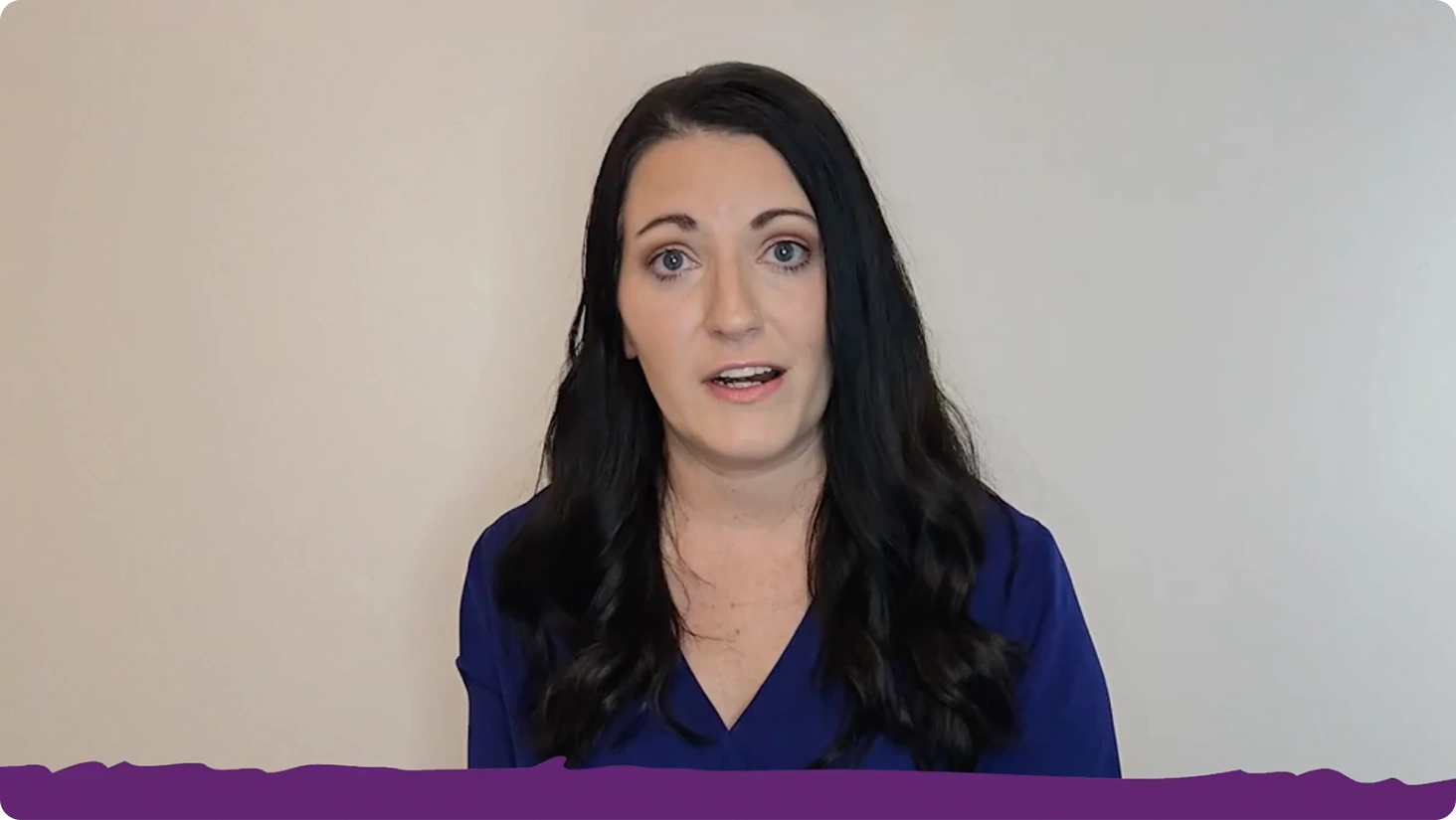
My name is Brittany and I am from Nicholasville, Kentucky. I was born and raised in northern Kentucky. I have two children, a son that's 17 and daughter that is 12. Probably my favorite hobby is just being outside. We've got 10 acres here in Jessamine County. I love exploring the land, hiking, and even photography.
I was diagnosed with stage two squamous cell carcinoma at the age of 34 in June of 2020. So that’s stage two anal cancer. My initial symptoms were extreme itchiness and discomfort, especially when I sat for a prolonged period of time. And then a little bit of bleeding when I went to the bathroom, and of course blood in my stool. But those were the main symptoms that really made me wonder what was going on.
My initial appointment with my primary care doctor, going to her and explaining that I had itchiness and discomfort and a little bit of bleeding; she ended up referring me to a gastroenterologist. And really she didn't know what was going on. I mean, she didn't see hemorrhoids or anything, and she just, she thought with my family's history of cancer, it would just be better safe than sorry for me to see a gastroenterologist. So I go into this appointment, eager to then go into scheduling a colonoscopy. Little did I know I was walking into kind of a battle for my own body. And this gastroenterologist, when I explained my symptoms to him, he looked at me and he said, you're healthy. At the time I was 32 years old. He said, you're healthy. I don't see anything wrong with you, your symptoms, it's probably internal hemorrhoids. I don't think we need to do a colonoscopy. And I just kept begging him to the point of almost crying. And what most people who know me when I get really upset, I cry <laugh>. And so I was just getting frustrated, mad because I felt internally that there was just something more going on.
The one thing that I would want someone to know as they go into their diagnosis of getting anal cancer is just knowing that they're not alone. I think when I was first diagnosed and reading up on it and reading that it was a rare cancer, and then of course it was caused from HPV, I just felt very suffocated in my own little circle. And it drove me to a point where I kept digging to find people. And so that's, you know, it's like find a community, search and, you know, we live in technology days now where like hashtags are amazing and I searched “anal cancer” hashtags, and that's how I connected with a lot of the amazing women that I have still been in contact with four years later.
And so it's just to really put that diagnosis aside for a second and find their support group and find people alike to just know that they're not alone and they don't have to sit there and dwell in that initial embarrassing feeling and diagnosis of an HPV-related cancer and anal cancer.
One of the biggest misunderstandings with HPV-related cancers or just HPV in general is that you don't have to have multiple sex partners to obtain that virus. You know, it can happen to anybody. And so I was terrified to go to my family and say, Hey, it's anal cancer. And so initially I was going to tell them that I had a colorectal cancer, but then that brought up a lot more questions. Oh, is it colon cancer? Is it rectal? Is it this? And so I flat out, I just was like, screw it, it's anal cancer.
And they were like, anal cancer. Is that genetic? Like my mom, she's all about like genetic cancers and the history of our family. Is that genetic? Did I cause that? And I'm like, no, mom <laugh> you, you didn't cause that. So, my family took it really well. But it was hard to open up to everyone because even saying the word “anal cancer” is very difficult for a lot of people. But over time I've gotten used to it. It's just, it's part of me now.
What I hope that others take away from my story is to see that this can happen to anyone. I'm a 38-year-old mother. I never thought that this type of cancer or diagnosis would happen to me. And so, upon receiving the news that you have anal cancer, just don't feel ashamed. Don't pay attention to the stigma that surrounds it. Just know that you have a community surrounding you of amazing people who will help you get through it. And I think that that's the biggest takeaway. It's just that you're not alone. And then just to continue to be an advocate for yourself and your children, and even your family. I'm only here today because I'm my own advocate. If I hadn't stood up to a doctor <laugh> years ago, I wouldn't be sitting here today being able to share my story. And I'm a firm believer in that.
An Expert Perspective: Speaking Up About Your Symptoms
Hear expert oncologist Dr Philip Philip, who has more than 30 years of experience treating anal cancer, discuss the importance of speaking up and connecting with your doctor.
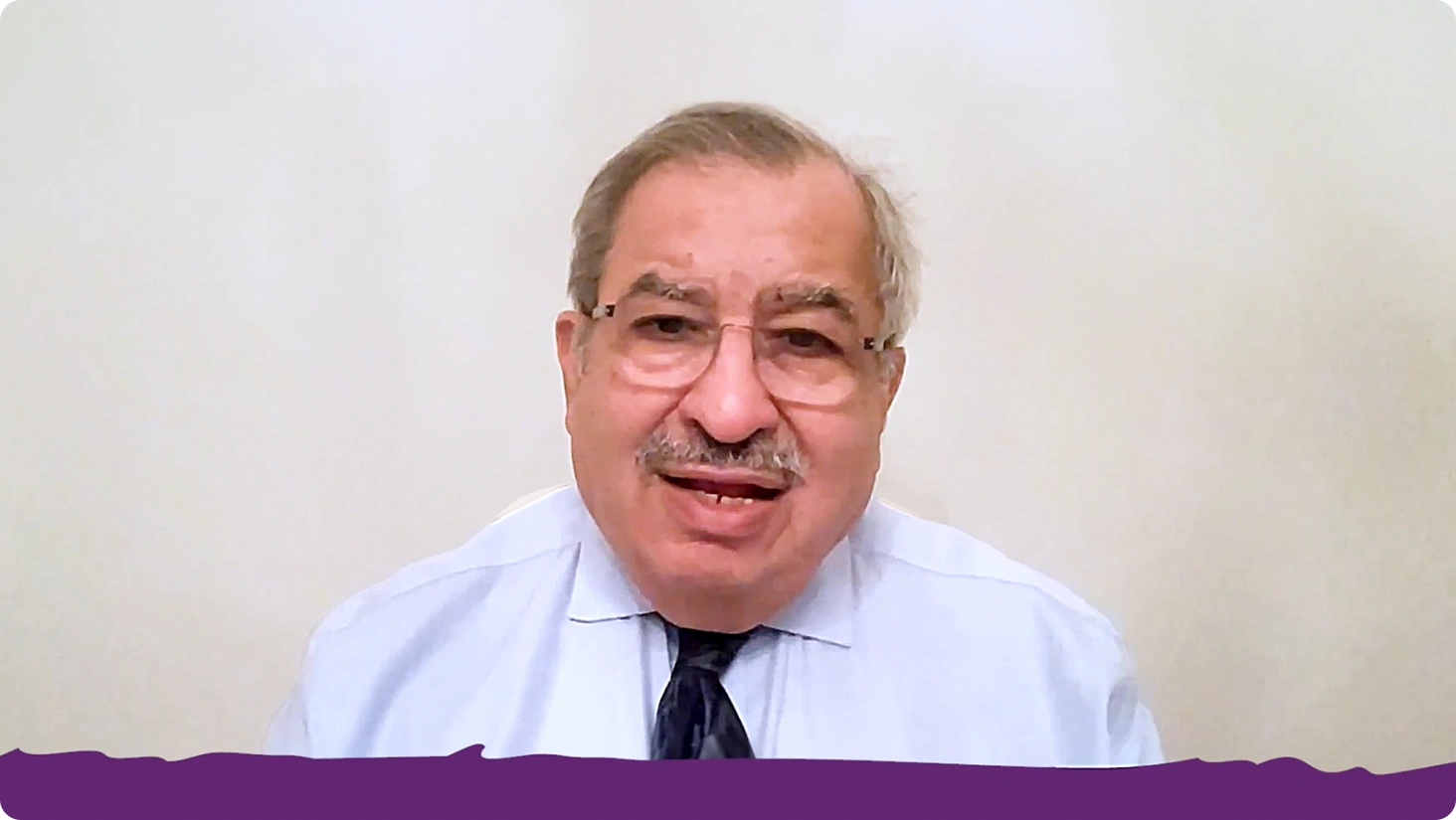
My name is Philip Philip, I am a Professor of Medical Oncology. I specialize in gastrointestinal malignancies, and I have been treating anal cancer for the past three decades. For patients who have symptoms in the anal area, if the symptoms include pain, this is talking about beyond an anal discomfort that comes and goes, and has been there for a while. This is beyond saying that there is some bleeding, which is really known to be associated with hemorrhoids. So anything that has pain which is getting worse, bleeding getting worse, any difficulty in opening the bowels and getting worse—all these things really have to be looked at immediately by a doctor.
Make sure that the doctor really examines you. Anything beyond a discomfort, approaching pain, or increasing pain should be taken very seriously. During my career of three decades, I still see sometimes patients who have their symptoms either ignored, or the patient didn't follow up on the symptoms. Anything that persists and gets worse has to be investigated.
Patients have to use their resources of communicating with the team effectively, and they shouldn't be any reluctance in doing that. We don't really get upset if a patient calls us two or three times a week, we get upset if they don't call us, and then three weeks later they are in worse shape. So that's important.
I wish more people knew that if you’re experiencing pain, if you have a change in bowel habits, if you’re experiencing itching, if you can feel a lump—those are all symptoms of anal cancer and you need to go see a doctor.
–Claudia M., SCAC thriver
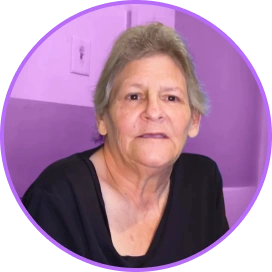
Support & Resources
Discover tools to help you feel more confident and in control as you navigate your anal cancer diagnosis.
Discussion Guide
It's not always easy to know what to ask your doctor. This guide can help. It gives you questions and key terms to make the most of your conversation.
Discussion Guide
It's not always easy to know what to ask your doctor. This guide can help. It gives you questions and key terms to make the most of your conversation.
Community Resources
These resources may provide support and help you connect with others who understand what you're going through and how to navigate it.



